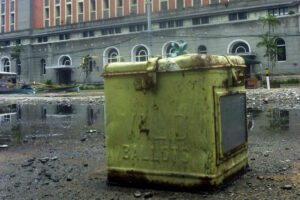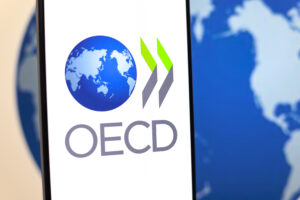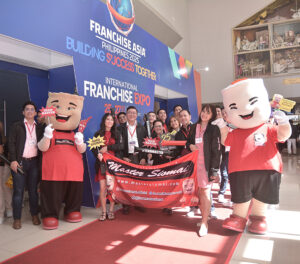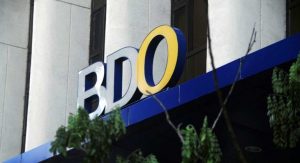That the quality of lawmakers has deteriorated over decades has been the topic of discussions ad nauseam, with one social media post, for example, noting that the first Senate in 1916 included a medical doctor, a diplomat, an Islamic theologian, a teacher, and a revolutionary general, among others.
But the task of educating voters, on whom elective hopefuls pin their hopes, remains a timeless task that is crucial for the preservation and growth of any democratic system faced with shifting sands like the misuse of artificial intelligence of late.
While our country has been known for maintaining a vibrant (or just plain noisy?) political system, it has chalked merely “mid-range performance” in international metrics, including:
• The 2024 “Global State of Democracy” report published by Stockholm-based intergovernmental organization International Institute of Democracy and Electoral Assistance in October last year, which tracks the state and quality of democracy worldwide, placed the Philippines 90th out of 173 countries, as well as 96th, 104th, and 64th, respectively, in the areas of representation (free and equal access to political power), rights (individual liberties and resources), rule of law (predictable, equal enforcement to the law and limitation of government power), and participation (instruments for and realization of political involvement, particularly through election and civil society).
• The “Freedom in the World 2025” report that was released by Washington, DC-based Freedom House in February, which rates people’s access to political rights and civil liberties in 208 countries and territories, classified the Philippines as “partly free,” retaining an overall score of 58/100 (the higher the number, the better), as well as 25/40 for political rights and 33/60 for civil liberties, for the past three years, though down from 55/100 in 2022.
• “Democracy Index 2024” published by London-based Economist Intelligence Unit (EIU) early in March, still described the Philippines as a “flawed democracy” even as it rose two spots to 51st out of 167 countries, though with an overall score of 6.63 (out of 10, which is the best) that was the worst in three years and the second straight annual drop (meaning many others saw a bigger score reduction, since we still bested averages of 5.31 for Asia and Australasia and 5.17 for the world). EIU’s study gave us the highest scores in electoral process and pluralism (8.75), political participation (8.33), and civil liberties (7.06), and our lowest grades in functioning of government (4.64) and political culture (4.38).
Not exactly the picture our politicians would want to paint when they trumpet the merits of our democratic system.
Free fair elections are both a bedrock and barometer of a healthy democracy. And quality of an electorate — besides a supportive system — lies at its core.
In terms of framework: target reforms range from the push for a genuine party system (with some quarters noting that, unfortunately, it seems that only the communist party has a solid platform and program) to a ban on political dynasties (members of civil society groups like 1SAMBAYAN Coalition, SANLAKAS, Advocates for National Interest as well as former senior government officials and church leaders on March 31 asked the Supreme Court to compel Congress to pass a law that will define “political dynasty” in order to operationalize the ban enshrined in Article II, Section 26 of the 1987 Constitution). Reform gains have been few and far between, but hopefully this move vs dynasties will finally bear fruit nearly 40 years after the Constitution banned these political monopolies (notably: the Bangsamoro Autonomous Region in Muslim Mindanao, or BARMM, spells out an anti-dynasty provision in both its Bangsamoro Electoral Code and its Bangsamoro Local Governance Code1, as does Republic Act No. 10742, or the SK Reform Act, which provides that kin of elected/appointed officials within the second civil degree of consanguinity — by blood, or affinity — and by marriage, are prohibited from seeking seats in the Sangguniang Kabataan2.)
NOT ENOUGH VOTER EDUCATIONA few civil society groups have also taken up the task of voter education in cooperation with the Commission on Elections (Comelec), including the National Citizens’ Movement for Free Elections (Namfrel), the Parish Pastoral Council for Responsible Voting (PPCRV), the Legal Network for Truthful Elections, Kontra Daya, the Philippine Social Science Council, the Center for Liberalism and Democracy, and the Student Christian Movement of the Philippines, among others. Comelec and these groups have sought to inform the electorate on election processes, rights and responsibilities, as well as irregularities like vote-buying and misinformation/disinformation like Deepfakes.
Namfrel Secretary General Eric Jude O. Alvia — who joined the group as a volunteer in the mid-1980s and observed the 1993 Cambodian, 1999 Indonesian, and the 2009 Afghan presidential/general elections — said in a recent chat that the watchdog has sought to convince the public on the “importance of getting involved” even after elections by pushing for good governance and accountability in their own communities. Namfrel conducts voter education in both face-to-face and online settings, including on Meta, YouTube, TikTok, X, and its own mobile app. Key performance indicators it tracks include an increase in voter turnout, particularly among the marginalized; greater citizen involvement in safeguarding the electoral process; confidence in the integrity of vote counts; fair, orderly conduct of campaigns; and that citizens mobilize and monitor the performance of elected officials.
With decades of such initiatives, one would think that we would have seen results by now, particularly the election of more officials for whom good governance is second nature.
Well, no such luck (for now, one can count known good governance advocates among national and local officials with the fingers of two hands), meaning these efforts clearly lack something.
I recall good governance advocate Jesus P. Estanislao, a former Finance and Socioeconomic Planning chief, as ruing a backsliding to “the old ways” of government just when one would have thought that inroads and progress had been made in this regard. The bolt that should have secured hard-earned governance gains lies with the electorate who, as the governed, ought to keep holding elected officials accountable.
BETTER MESSAGING NEEDEDSo, how can voter education be taken a step further?
For one, it may be time for the various civil society groups to pool or at least coordinate efforts with one another, thus ensuring more effective distribution and delivery of a more coherent message. Mr. Alvia said that Namfrel focuses on areas with a high concentration of marginalized groups, including in the BARMM, while PPCRV concentrates on Catholic parishes.
There are enough studies showing that, given the right mix and conditions, more brains drawing from a wider bank of experiences should yield better solutions3 — in this case, sharpen messages and their delivery, as well as come up with a system that would cover more communities nationwide. These groups do not have to hold a public summit to exchange notes — at least not at the outset — but, clearly, much of our country’s future is at stake in being able to improve efforts to upgrade the knowledge and attitude of our electorate.
Such messages may range from simple, pointed questions for voters in the run up to elections, e.g., something like the Rotary Club’s The Four Way Test — has the candidate authored substantive laws/have a track record of actually improving the lives of constituents? — plus pointers on where to find such information, to other facets of voter education, e.g., how to keep officials on their toes until the next elections.
And as any marketer will tell you, one should observe prescribed message form and delivery according to platform — whether one-site/in-person, television, radio, virtual meeting, or on social media, as well as across the various social media platforms — else, one risks messages getting lost in translation.
HOLY GRAILAnother element to consider is the composition of the audience: a Pulse Asia survey put classes D and E at 78% and 14% of registered voters, respectively.4
That, says Namfrel’s Mr. Alvia, dictates the content and form of messaging. “These people want certainty and stability,” he said, noting that their families’ difficult circumstances top all other factors in shaping their voting preferences (hence, one cannot convincingly talk about the evils of selling votes in exchange for P500-P1,000 to those seeking desperately to put the next meal on the table).
Thus, voter education results have so far been a mixed bag, Mr. Alvia said, noting “some success among the youth sector” though campaigns have not been “as successful with the older generation and the D/E [classes] since they are most vulnerable… to their soc[io]/eco[nomic] plight…”
Any message harping on the need for “good governance” and “integrity” will likely fall on deaf ears in this segment. Indeed, one wonders how such abstract ideals fly in the face of nearly three out of 10 Filipino families (27.2% or about 7.5 million households, according to a March 15-20 Social Weather Stations, or SWS, survey) who grew hungry “at least once in the past three months” — the worst level since the record-high 30.7% recorded as the COVID-19 pandemic picked up in September 2020.5
While lofty principles are, to be sure, most crucial to improving our electoral system — well, to these, perennial skeptics would argue: “Eh, hindi naman nakakakain ang prinsipyo (One cannot eat principles).” So, such advocacy should be creatively designed to show how they address gut issues that are ever-present and always immediate to the poor.
That goes for election candidates as well, by the way.
Campaign strategist Alan S. German said over ABS-CBN News Channel late last week that candidates will do well to focus messages on health, education, livelihood, peace and order, and social services (HELPS), if they expect voters to remember them. He noted that survey top-notcher Senator Christoper Lawrence “Bong” T. Go clearly learned that secret early on, choosing since 2019 to focus on his Malasakit Centers which, from local government accounts, have actually been helping the poor, thus, sealing his moniker, “Mr. Malasakit.”
That view is backed by a Feb. 15-19 SWS survey showing that voters would choose candidates who they perceive would increase jobs, develop agriculture and enhance food security, reduce poverty and hunger, strengthen healthcare, provide equal access to education, and control the prices of basic services and goods.6
Similarly, a group bearing the same acronym as the government’s conditional cash transfer program — the Pagtibayin at Palaguin ang Pangkabuhayang Pilipino (Strengthen and Grow the Filipino Economy), or 4Ps — has been topping the SWS survey of 156 party-list groups.7
Actually, this is not something new, as I recall one prominent economist who, addressing a then newly elected president who asked how he could do a good job, replied: “Mr. President, just focus on helping the poor get jobs or start a livelihood, put food on the table and a roof over their heads, and you will do just fine.”
Until those seeking to sway voters — whether Comelec, watchdogs, political parties/candidates — get this right, connecting with most of them will remain a holy grail.
1https://tinyurl.com/2chvyrgn
2 https://tinyurl.com/269aeyup
3Anita Williams Wooley, Ishani Aggarwal and Tomas W. Malone, “Collective Intelligence and Group Performance,” Current Directions in Psychological Science, Association for Psychological Science, SAGE Publishing, 2015, https://tinyurl.com/25sx8u5j and https://tinyurl.com/29o9px6m
James Surowiecki, The Wisdom of Crowds, Doubleday, 2004
4 https://tinyurl.com/2auex2lz
5 https://tinyurl.com/2283j43o
6 https://tinyurl.com/285f66ym
7https://tinyurl.com/243av87w
Wilfredo G. Reyes was editor-in-chief of BusinessWorld from 2020 through 2023.






